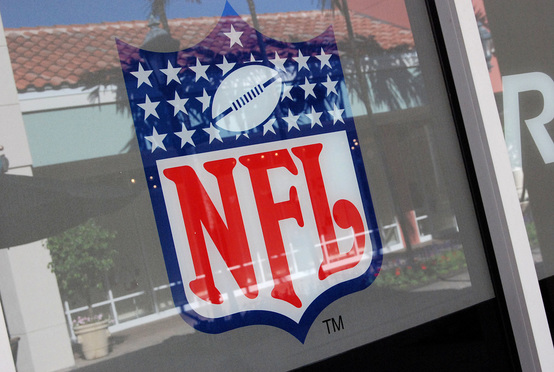Litigation Funder Appeals Ban on Assignment of Claims in NFL Concussion Case
A litigation funding company has appealed a federal judge's decision that barred third parties from entering into assignment agreements with former NFL players seeking recovery from the $1 billion concussion-related settlement.
January 05, 2018 at 01:46 PM
3 minute read
 Photo: Flickr user hyku via Wikimedia Commons.
Photo: Flickr user hyku via Wikimedia Commons. A litigation funding company has appealed a federal judge's decision that barred third parties from entering into assignment agreements with former NFL players seeking recovery from the $1 billion concussion-related settlement.
Litigation funding company RD Legal, which has recently become the center of disputes in both Pennsylvania and New York federal courts, filed a notice of appeal Thursday in In re National Football League Players' Concussion Injury Litigation. The three-page notice said the company was appealing to the U.S. Court of Appeals for the Third Circuit over the order U.S. District Judge Anita Brody of the Eastern District of Pennsylvania entered in early December that said settlement language specifically forbid lenders from entering into loan agreements that required ex-players to assign over their monetary claims.
The one-paragraph notice did not indicate the substance of RD Legal's appeal.
Brody's order regarding third-party funding agreements rejected arguments from funders that the language of the settlement agreement only forbid assigning a claimant's tort claims, rather than monetary claims.
“A third-party funder that failed to perform proper due diligence before deciding to enter such an agreement is prohibited from now reaping the benefit of the contract,” Brody said.
According to Brody, all contracts assigning or attempting to assign the claims are “void, invalid and of no force and effect.” She said class members should return the money paid to them under the principle of rescission, or the funders could execute a waiver relinquishing the assignments and then the settlement claims administrator would withhold the amount from the class member's monetary award.
“The anti-assignment language in the settlement agreement clearly states the intent that class members are unable to make assignments,” Brody said. “Thus, the court has little sympathy for a third-party funder that will not receive a return on its 'investment.'”
Brody's decision came to the court by way of a referral from U.S. District Judge Loretta Preska of the Southern District of New York, who is presiding over an action that the Consumer Financial Protection Bureau and New York Attorney General Eric Schneiderman brought against RD Legal over agreements it entered into with retired NFL players and people seeking recovery for injuries suffered during the Sept. 11, 2001, terrorist attack in New York.
After RD Legal told Preska that assignment agreements were allowed in the NFL settlement, Seeger Weiss attorney Chris Seeger asked Preska to transfer the issue to Brody. Seeger, who is co-lead class counsel in the NFL litigation, also filed a motion seeking to have the claims administrator withhold funds from several litigation funders who had entered agreements with claimants.
Seeger, however, later came under fire for failing to disclose his ties with Esquire Bank, a litigation funding company that also provided loans to ex-NFL players. Until May 2016, Seeger was a director at Esquire Financial Holdings, a holding company for Esquire Bank, which has provided some loans to ex-players. The bank was not included as one of the funders Seeger brought to the court's attention.
Seeger later filed a declaration with the court outlining his history with Esquire Bank and said he did not previously mention the company's loans because they were properly structured loans with reasonable rates.
David Willingham of Boies Schiller Flexner, who is representing RD Legal, did not return a call for comment. A spokeswoman for Seeger did not return a message for comment.
This content has been archived. It is available through our partners, LexisNexis® and Bloomberg Law.
To view this content, please continue to their sites.
Not a Lexis Subscriber?
Subscribe Now
Not a Bloomberg Law Subscriber?
Subscribe Now
NOT FOR REPRINT
© 2025 ALM Global, LLC, All Rights Reserved. Request academic re-use from www.copyright.com. All other uses, submit a request to [email protected]. For more information visit Asset & Logo Licensing.
You Might Like
View All


Penn State Dickinson Law Dean Named President-Elect of Association of American Law Schools
Trending Stories
- 1Courts Grapple With The Corporate Transparency Act
- 2FTC Chair Lina Khan Sues John Deere Over 'Right to Repair,' Infuriates Successor
- 3‘Facebook’s Descent Into Toxic Masculinity’ Prompts Stanford Professor to Drop Meta as Client
- 4Pa. Superior Court: Sorority's Interview Notes Not Shielded From Discovery in Lawsuit Over Student's Death
- 5Kraken’s Chief Legal Officer Exits, Eyes Role in Trump Administration
Who Got The Work
J. Brugh Lower of Gibbons has entered an appearance for industrial equipment supplier Devco Corporation in a pending trademark infringement lawsuit. The suit, accusing the defendant of selling knock-off Graco products, was filed Dec. 18 in New Jersey District Court by Rivkin Radler on behalf of Graco Inc. and Graco Minnesota. The case, assigned to U.S. District Judge Zahid N. Quraishi, is 3:24-cv-11294, Graco Inc. et al v. Devco Corporation.
Who Got The Work
Rebecca Maller-Stein and Kent A. Yalowitz of Arnold & Porter Kaye Scholer have entered their appearances for Hanaco Venture Capital and its executives, Lior Prosor and David Frankel, in a pending securities lawsuit. The action, filed on Dec. 24 in New York Southern District Court by Zell, Aron & Co. on behalf of Goldeneye Advisors, accuses the defendants of negligently and fraudulently managing the plaintiff's $1 million investment. The case, assigned to U.S. District Judge Vernon S. Broderick, is 1:24-cv-09918, Goldeneye Advisors, LLC v. Hanaco Venture Capital, Ltd. et al.
Who Got The Work
Attorneys from A&O Shearman has stepped in as defense counsel for Toronto-Dominion Bank and other defendants in a pending securities class action. The suit, filed Dec. 11 in New York Southern District Court by Bleichmar Fonti & Auld, accuses the defendants of concealing the bank's 'pervasive' deficiencies in regards to its compliance with the Bank Secrecy Act and the quality of its anti-money laundering controls. The case, assigned to U.S. District Judge Arun Subramanian, is 1:24-cv-09445, Gonzalez v. The Toronto-Dominion Bank et al.
Who Got The Work
Crown Castle International, a Pennsylvania company providing shared communications infrastructure, has turned to Luke D. Wolf of Gordon Rees Scully Mansukhani to fend off a pending breach-of-contract lawsuit. The court action, filed Nov. 25 in Michigan Eastern District Court by Hooper Hathaway PC on behalf of The Town Residences LLC, accuses Crown Castle of failing to transfer approximately $30,000 in utility payments from T-Mobile in breach of a roof-top lease and assignment agreement. The case, assigned to U.S. District Judge Susan K. Declercq, is 2:24-cv-13131, The Town Residences LLC v. T-Mobile US, Inc. et al.
Who Got The Work
Wilfred P. Coronato and Daniel M. Schwartz of McCarter & English have stepped in as defense counsel to Electrolux Home Products Inc. in a pending product liability lawsuit. The court action, filed Nov. 26 in New York Eastern District Court by Poulos Lopiccolo PC and Nagel Rice LLP on behalf of David Stern, alleges that the defendant's refrigerators’ drawers and shelving repeatedly break and fall apart within months after purchase. The case, assigned to U.S. District Judge Joan M. Azrack, is 2:24-cv-08204, Stern v. Electrolux Home Products, Inc.
Featured Firms
Law Offices of Gary Martin Hays & Associates, P.C.
(470) 294-1674
Law Offices of Mark E. Salomone
(857) 444-6468
Smith & Hassler
(713) 739-1250






